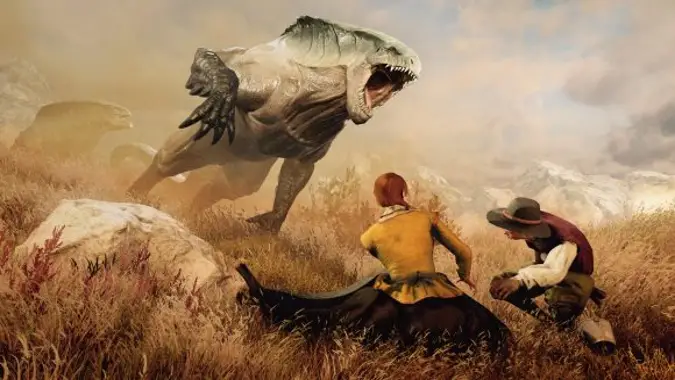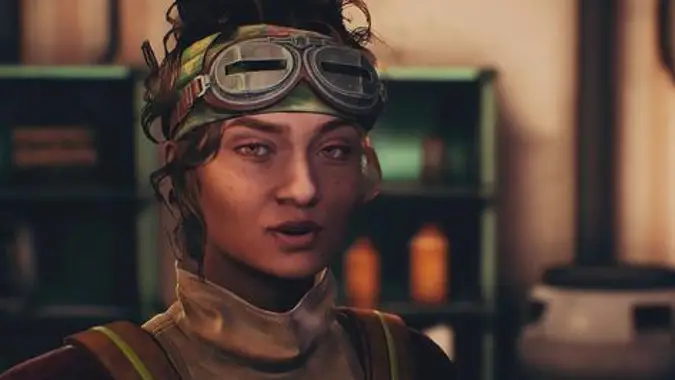Off Topic: Are we seeing the return of linear, closed world gaming?

I don’t know if the term closed world makes any sense per se, but considering that The Elder Scrolls V: Skyrim ushered in the term ‘open world’ and it’s become synonymous with a certain kind of gameplay experience — also known as sandbox games — I thought I’d talk about whether or not gamers are finally ready to embrace games which don’t subscribe to that philosophy.
It’s not that I think sandbox or open world games are dead — far from it, in fact. Assassin’s Creed Odyssey had an utterly massive world, Horizon Zero Dawn and Red Dead Redemption 2 were both massive hits, and plenty of other games from the Just Cause series and Skyrim’s adopted sibling Fallout having had Fallout New Vegas, Fallout 4 and the entirely sandbox Fallout 76 in recent years. Heck, Diablo 4 sounds like it’s going in the open world direction, and I think it could be a ton of fun for the Action RPG giant to explore that.
But I have noticed a few games that have moved away from the explore an endless world style of gameplay. Just recently I’ve played two, Greedfall and The Outer Worlds. Both of these games straddle a line between having a lot of content to explore and painting a picture of a setting with locales to visit while also delivering a more targeted experience. Both games are interested not in allowing you to explore absolutely every crevice of a huge, expansive world, but instead present you with enough locales to tell the story they’re trying to unravel — neither are small, certainly, but they don’t present a lot of extraneous places or quest bits and even those side quests they do present serve to give you more context for the adventure you’re on.

When the world tells a story
Greedfall goes for what I’m calling “Open World light” in its approach — there are a lot of places to go, and a fair amount of side quests that can be ignored if you want, but those side quests will change the gameplay experience so ignoring them is a choice, and one that leads to a very different story in some of its details. Your companions give you quests that take you to places you might not otherwise go to and in so doing reveal things you may be shocked to discover — the major storyline won’t be affected, but your character could end up very different if you don’t take them all to the end. It’s not until you’ve invested a fair few hours in the game that you’ll start to realize that you can go just about anywhere, but in many cases, there’s nothing there if you’re not on one of those quests. If you don’t have a reason to go there, then there’s nothing waiting for you, instead of the open world approach of stuffing in content everywhere independently of if you have a quest to go there or not. It’s an approach that feels a lot like an old Bioware game, like the original Baldur’s Gate.
Meanwhile, The Outer Worlds is so pure and distilled an experience, you can see the blueprint of the games that open world gaming derived from. Tim Cain and Leonard Boyarsky are telling a lean but dense narrative here, and every world detail — every computer you hack, every datapad you find, every random NPC you speak to — exists to help bring that narrative into sharper focus. The worlds you can visit are gated behind the navkey mechanic, meaning that you can’t just skip off and visit Monarch or Byzantium before the story is ready for you to go there. You’re not on rails — there is a degree of agency towards where you go next that befits a tale of miscreants in space on board a spaceship you only have because your escape pod crushed the captain to death — but the story controls where you go and when, which is to my mind the exact antithesis of an open world.

It’s not always bad to be on track
Put another way, Greedfall will let you go places, but until the story is ready for you there won’t be much there. The Outer Worlds won’t even let you go there until the story wants you to. And both approaches work beautifully for the games they’re in — the worlds are interesting and engaging and part of the stories they’re telling, using setting as both character and scene, without needing to allow you unfettered freedom to go anywhere and do anything. In fact, both games even enforce consequences for the choices you make — this isn’t a Grand Theft Auto game where you can steal a helicopter and use it with abandon and then hide out for a few minutes until the cops lose interest. If you upset the factions in these games, they remember it.
I’m very much reminded of the games that feel ancestral to these two — the original Fallout and Fallout 2 and Obsidian’s Fallout New Vegas for The Outer Worlds (but also Obsidian games like Alpha Protocol and the long gone and lamented Arcanum from Troika Games) and Greedfall honestly feels like a Age of Exploration module for Neverwinter Nights sometimes. And those are some of my favorite games, because not every game needs to throw you into a vast ocean and exhort you to swim and see how it works out for you. I’m not at all against open world as a concept, when done well — I’ve probably preached the Assassin’s Creed Odyssey love until everyone is heartily sick of it, and I think my love for Kingdoms of Amalur is well established by now. But I’m also not opposed to games that pull back and use the world not just as a series of sand castles to kick over, but as a means to an end — a character as much as a setting.
So here’s to smaller, more concentrated games that tell a story and end instead of just existing to be a sprawling theme park for you to explore. I hope the success of these two games means we get more like them.
Please consider supporting our Patreon!
Join the Discussion
Blizzard Watch is a safe space for all readers. By leaving comments on this site you agree to follow our commenting and community guidelines.
 @MatthewWRossi
@MatthewWRossi



